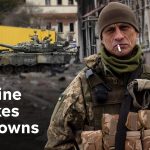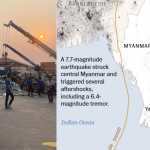THE Vatican announced, via a video statement on Monday, that Pope Francis, the first Latin American leader of the Roman Catholic Church, had died.
His passing marked the end of a frequently turbulent reign, characterised by division and tension as he attempted to reform the institution.
He was 88 years old and had recently recovered from a serious bout of double pneumonia.
Cardinal Kevin Farrell, speaking on the Vatican’s television channel, expressed his profound sadness in announcing the death.
He declared that, at 7:35 that morning, the Bishop of Rome, Francis, had died.
Jorge Mario Bergoglio was elected Pope on 13 March 2013, a selection that surprised many Church observers who had considered the Argentine cleric, known for his concern for the poor, an outsider.
He had aimed to project simplicity in his role and chose not to occupy the ornate papal apartments in the Apostolic Palace, preferring communal living for the sake of his “psychological health.”
He had inherited a Church under attack due to a child sex abuse scandal and internal bureaucratic infighting and was elected with a clear mandate to restore order.
However, as his papacy progressed, he faced substantial criticism from conservatives, who accused him of discarding cherished traditions.
He also drew criticism from progressives, who believed he should have done more to reshape the 2,000-year-old Church.
Despite internal dissent, he became a global figure, attracting large Catholic crowds during his international travels.
His papacy was unique in modern times, as he shared the Vatican with his predecessor, Benedict, who chose to reside there after his 2013 resignation. Benedict, a figurehead for conservatives, died in December 2022, leaving Francis as the sole Pope.
Francis had appointed nearly 80% of the cardinal electors who would choose his successor, raising the possibility that his progressive policies would continue, despite strong opposition from traditionalists.
-BTS Media



